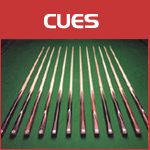Biography: |
Joe
Johnson
winning the world championship was the biggest
shock this great event had ever witnessed but,
make no mistake, he was a very good player but
one whose achievements had never quite matched
his talent - until then.
One of the best amateurs of his time,
Joe was
National Under-19 champion in 1971 and three
times Yorkshire Champion. He was runner-up to
Terry Griffiths in the English Amateur
championship of 1978 and, with Terry being a
Welshman, that qualified him as Englandís
representative in that yearís World Amateur in
Malta. He gave a very good account of himself
reaching the final where Cliff Wilson proved too
good for him. That prompted him to turn
professional in 1979.
Joe got off to a
slow start as a professional, never getting
beyond the qualifying stages of his first four
world championships. A quarter-final in the 1982
Professional Players Tournament earned him his
first ranking points and that season he reached
the Crucible stage of the Embassy for the first
time but lost his opening match. When he again
lost in the first round of the Masters at
Wembley people started to say that he could not
perform in front of the TV cameras. It was not
until the 1985 Mercantile Credit Classic that he
won his first televised march. As an amateur
however he held the world record break of 140;
and that was televised! In the meantime, the
1983 Professional Players Tournament, provided
him with his first ranking final. 1-6 down to
Tony Knowles at one stage, he fought back and
only lost in the decider 9-8. Needless to say,
this event was not televised. When he finally
laid the TV ghost in that 1985 Mercantile Credit
event he went on to reach the semi-final and
ended that year in the top 16 - just.
The 1985/86 season got off to a modest start
with just two quarter-finals and he arrived at
the Crucible in April as a 150-1 outsider still
looking for his first match win at that venue.
In fact he had still not earned a single ranking
point from the world championship in six
attempts. This time, however, he got off to a
good start with a 10-3 beating of Dave Martin
and he had finally got that first win under his
belt. Mike Hallett was his second round victim
and then he edged past Terry Griffiths by the
narrowest of margins, 13-12. He saw off Tony
Knowles in the semis before facing Steve Davis,
determined to regain the title he had lost to
Dennis Taylor. Joe
proved up to the task and ran out the winner
18-12. Joe
was champion of the world.
Winning the world title seemed to have an
adverse effect on his form and he had a poor
season in 1986/87 not getting beyond the last 16
of any ranking event and again was given no hope
of retaining his world title. In the event he
surprised everyone and reached the final again.
This time however, Steve Davis got his revenge
by 18-14. This did however prove to
Joe, as much
as to everyone else, that he was good enough to
win tournaments and he started the 1987/88
season by taking the Scottish Masters title. He
followed this with a UK semi-final and got to
the last four of the B & H Masters.
His second world final had taken him to fifth
in the rankings but it proved to be down hill
from then on. His form slumped and to add to his
troubles he developed heart problems. By the end
of the 1989/90 season, although he picked up the
non-ranking European Grand Prix title, he had
dropped out of the top 16, never to return. His
eyesight was also giving him problems and he
took a while to come to terms with playing in
glasses. He did get back to the scene of his
greatest triumph, the Crucible, in 1991 but did
not get beyond the first round and since then
his best performances have been a couple of
quarter-finals in ranking events. The last few
seasons have found
Joe languishing in the mid fifties in the
rankings but he continues to perform reasonably
well and has not, so far, been in danger of
losing his place on the tour although he may
struggle in the 2000/01 season which he starts
in 61st place with only the top 64 guaranteed a
place.
In his spare time
Joe sings with a band or at least he used
to, claiming to have the best voice among the
top players of his era. His future may well be
on the embryonic seniors tour but no one can
take away those wonderful memories of May 1986
when he had the world of snooker at his feet.
|








